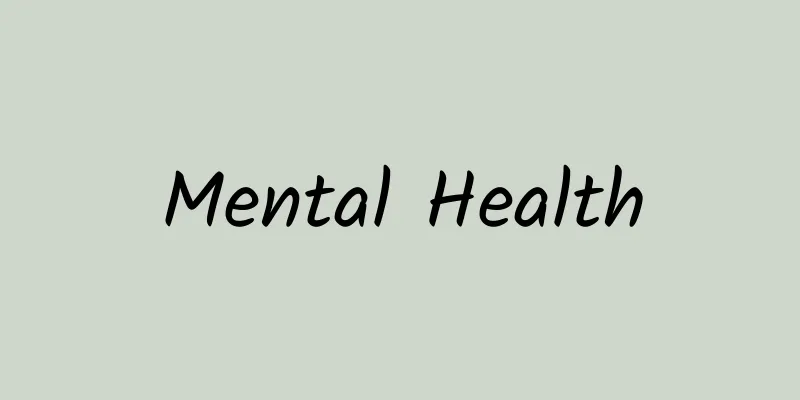Mental Health

|
Health refers to a person being in a good state physically, mentally and socially. Health includes two aspects: first, the main organs are free of disease, the body shape is well developed, the body shape is even, the various systems of the human body have good physiological functions, and there is a strong ability to move and work, which is the most basic requirement for health; second, the ability to resist disease is strong, and it can adapt to environmental changes, various physiological stimuli and the effects of pathogenic factors on the body. The traditional concept of health is "health without disease", while the modern concept of health is holistic health. The World Health Organization proposes that "health is not only the absence of physical disease, but also mental health, good social adaptation and morality". Therefore, the content of modern people's health includes: physical health, mental health, spiritual health, social health, intellectual health, moral health, environmental health, etc. Mental health is an important part of health. It involves people's psychological and emotional states, and how these states affect their thinking, behavior and overall well-being. 1. Definition and Connotation 1. Mental state Mental health means that an individual has a good mental state, including emotional stability, and is able to cope with stressors in daily life without excessive anxiety, depression, and other negative emotions. For example, when facing work pressure, one can maintain an optimistic and positive attitude and reasonably adjust one's mentality. 2. Social Function From the perspective of social function, mentally healthy people are able to establish good interpersonal relationships with others. For example, they get along well with their family members at home, cooperate happily with colleagues at work, and actively communicate and interact in social occasions. They can also fulfill their social roles, such as being able to work normally and take care of the family like adults. Mental health is not only related to a person's inner peace and happiness, but also directly affects their social skills, work efficiency and physical health. Mental health problems, such as anxiety and depression, may develop into serious mental illnesses if not intervened in time. 2. Influencing factors 1. Physiological factors The physiological structure and function of the brain have an impact on mental health. For example, an imbalance of neurotransmitters such as serotonin and dopamine may lead to mental illnesses such as depression and schizophrenia. Organic lesions in the brain, such as brain tumors, may also affect a person's mental state. 2. Psychological factors Individual personality traits are crucial. Personality traits such as introversion, loneliness, and perfectionism may make individuals more susceptible to psychological distress to a certain extent. Early childhood experiences are also very important. For example, childhood abuse or neglect may lead to mental health problems in adulthood. 3. Social environmental factors People with weak social support systems are more likely to have mental health problems. For example, lonely elderly people who lack the love and care of their families and society will have an increased risk of depression. In addition, high-pressure work and a highly competitive social environment can also have a negative impact on people's mental health. 3. Ways to maintain mental health 1. Healthy Lifestyle A regular schedule, a balanced diet and moderate exercise can help maintain mental health. For example, regular exercise can stimulate the brain to secrete endorphins, which can make people feel happy and relieve stress and anxiety. 2. Psychological adjustment Learn psychological adjustment techniques, such as deep breathing, meditation, positive thinking, etc. When you are under pressure, you can relax your body by taking deep breaths, and then adjust your mentality by giving yourself positive self-suggestions. 3. Professional help If more serious mental health problems occur, you should seek professional help in a timely manner, such as consulting a psychologist or psychiatrist, receiving psychotherapy or drug treatment, etc. 4. Social Support Social support is equally important for mental health. Social networks such as family, friends, and community can provide emotional support, practical help, and information exchange to help patients better cope with mental health problems. 5. Policy support The government and all sectors of society should also increase their attention and support for mental health work, promote the construction of the mental health service system, improve the accessibility and quality of mental health services, and provide comprehensive mental health protection for the public. In short, mental health is a complex and multidimensional concept that requires the joint efforts of individuals, families, society and the government to maintain and promote. |
<<: Are children's respiratory diseases at high risk again? Expert response →
>>: Hypertension: Caring for your heart starts with controlling blood pressure
Recommend
Is it true that Microsoft released a new Edge browser? What are the highlights of the new Microsoft Edge?
On January 16, 2020, Microsoft announced that the...
How many days can I go out during the confinement period?
The month after miscarriage is called the short c...
What happens if trichomoniasis is serious?
Trichomonas vaginitis is a common gynecological d...
Can I have sex before IUD is inserted?
There are certain precautions when inserting an I...
Moxibustion for infertility treatment
Children are the fruit of love, the hope of a fam...
[Creative Cultivation Program] Eating a handful of sunflower seeds = drinking a spoonful of oil? For those who love to eat sunflower seeds, it is best to understand these 4 things first!
Melon seeds are a must-have snack for entertainin...
Which high blood pressure medicines should not be taken first?
Many patients with hypertension accidentally disc...
What is the novel of The Thing in the Palm adapted from? Where can I read it for free?
The Thing in the Palm, starring Liu Kai, Peng Gua...
How to play Go? Basic rules and strategies of Go
In ancient China, there were many names for it, s...
I had sex 1 day after my miscarriage
You need to be observed in the hospital on the fi...
What to do if a pregnant woman catches a cold
The harm caused by colds to us is very great, and...
Something disappears from a woman's body after she gives birth
Some people say that having a child is a woman’s ...
Sore throat, cold, malformed fetus at 8 weeks of pregnancy
Eight weeks of pregnancy is still in the early st...
Why is Chengdu so hot? Chengdu customs
Chengdu has been known as the "Land of Abund...
How to store the leftover egg yolk mooncakes?
Mooncakes are a long-standing traditional snack a...









